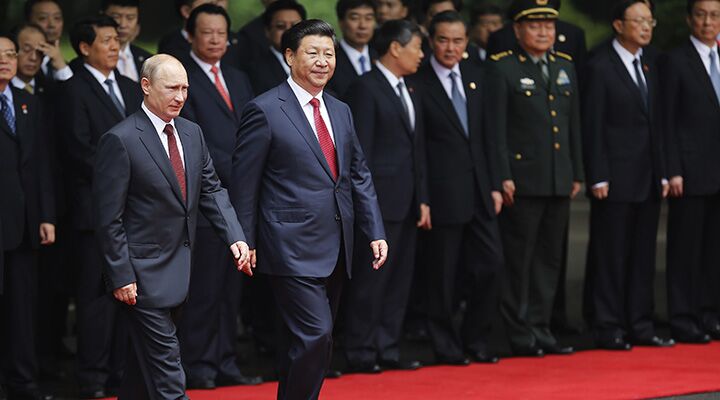
Report: Russia and China ‘March Together’ Against U.S.
Russia and China are marching together against a common adversary: the United States.
That is the assessment of an analysis by Artyom Lukin, a professor at Russia’s Far Eastern Federal University, which was published on September 8.
Mr. Lukin writes:
[T]he new edition of Sino-Russian alignment is unlikely to rupture anytime soon. Even though Russia and China have their share of disagreements and competing interests, they have no doubts about their main adversary—the United States. As long as Washington is seen by Moscow and Beijing as trying to contain them geopolitically and subvert their domestic political regimes, the entente between Russia and China will only grow stronger ….
Lukin points to one proof of this claim deserving of particular notice. In recent months, both Russia and China have held massive military parades to commemorate their victories in World War ii. And while most world leaders chose to refrain from attending these parades, Russian President Vladimir Putin attended the Chinese celebration. And, likewise, Chinese president Xi Jinping attended the Russian ceremony in Moscow. Each was the guest of honor at the respective events.
Mr. Lukin says these parades were conducted in a way that contributes to a trend of historic revisionism underway in both Russia and China:
The victory in World War ii has always been seen in Russia as achieved primarily through the efforts and sacrifice of the Soviet Union, with the help of America and Great Britain. Russia’s official discourse is now palpably changing, with China replacing the Western allies as the second-most important contributor to the outcome of the war: The Soviet Union made the decisive contribution to the defeat of the Nazi Germany in Europe, while China overcame imperial Japan in Asia.
This “official discourse” is egregious historic revisionism—especially in its attempt to retroactively paint China as the main power to defeat Imperial Japan. But in order to stoke nationalist sentiments, to congeal the developing Russo-Chinese bond, and to feed the narrative that both Russia and China are deserving of more veneration than Western nations typically give them, such painting is expedient.
Lukin explains:
Xi Jinping’s participation in the Victory Day celebrations in Moscow and Putin’s return visit to Beijing for the commemoration of the end of the war in Asia consolidate this new interpretation of history with the obvious aim of strengthening solidarity between the two countries in opposition to the West.
To understand the significance of the burgeoning Russia-China axis, and what it means for the United States and the world, read “Asia Stands With Putin.”
